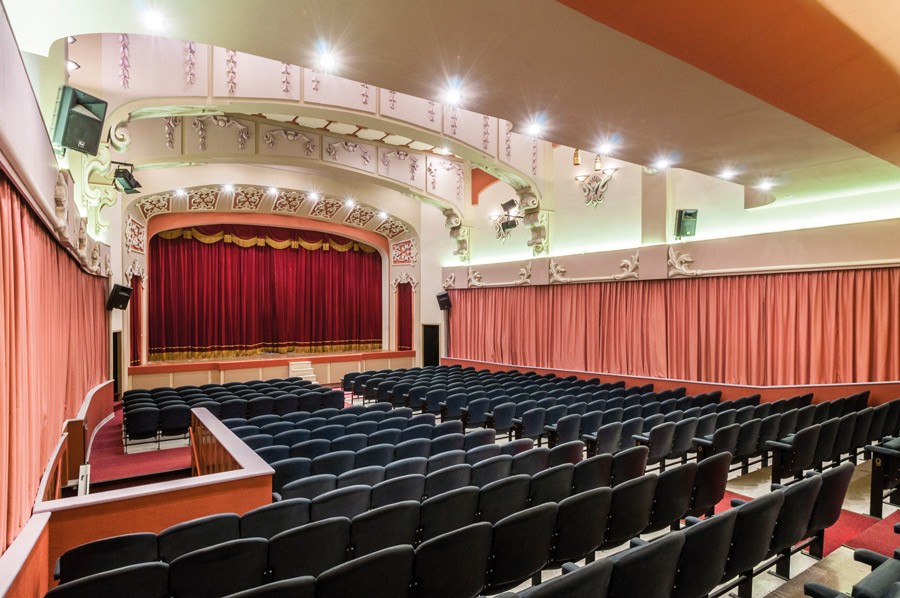By The Valletta 2018 Foundation in collaboration with Arts Council Malta
Ask any practitioner of the performing arts in Malta what their biggest cross to bear is, and a veritable list comes pouring out like burning lava. However, once you plough through the expected maladies that plague every small art scene—limited audiences, limited sources of funding available, unctuous reviews—in Malta, you’ll always arrive at this: a lack of viable spaces for productions and rehearsals.
Finding the right location for their next performance is a constant headache for producers. Popular venues are booked months and months in advance, leaving them wracking their brains to source a decent space. But is this truly happening because of a lack of spaces for this burgeoning arts scene of ours? Or is it that there are many more theatrical spaces that people do not know about?
This is not to say that the producer is to blame. Many of the spaces in Malta are almost completely undocumented and undiscoverable unless you, in typically Maltese fashion, ‘know a guy’. And while local production companies may be able to find a
way around this given the small size of the community, a foreign group would find the task not only daunting, but close to impossible. This is a big challenge faced by a country whose capital is soon to take the wheel as the European Capital of Culture for 2018. The Theatres Audit was created to address just this. The Theatres Audit, which grew out of the Cultural Mapping project and is commissioned by the Arts Council Malta, lists and describes the physical characteristics and technical equipment of many venues across the Maltese Islands that can be used to host theatrical or musical productions. The result is a wide-ranging and comprehensive profile for most venues, running the gamut from well-known spaces to hidden gems. The results of this study will be published in a catalogue titled Spazji Teatrali: A Catalogue of Theatres in Malta and Gozo in late March 2017, and will be available on the Valletta 2018 Foundation and Arts Council Malta websites.
The study built upon an initial list of theatres compiled by the National Statistics Office and explored further spaces through a team comprised of architects and engineers, thespians, and academics. ‘Some theatres which were on the initial list did not really fall within the description of a theatre,’ says Glen Farrugia, co-editor of the catalogue. ‘We were in constant search for other theatres which were “forgotten” and hidden, and which had great potential in re-establishing their function within the community. This often required some in-depth research, questioning and ‘investigative’ work from our end.’ The team ended up auditing almost 80 theatres in almost a year.
‘It was not always possible to follow the agenda I set up every week,’ admits Glen. ‘Most of the theatre managers and custodians were volunteers, so the project team had to work around their schedules, often resulting in the cancellation or postponement of appointments. But each site visit produced something important; from unique architecture which is often found in foreign theatres, such as the one at the Blue Arena in Zabbar, to stories of elderly custodians who provided important narratives on the theatres, which added to the value of the actual audit.’
I saw photos of ex-Prime Ministers watching shows, trophies of massive regional theatre competitions, posters of productions which featured some of our best actors in their early days, and more.
‘Visiting theatre spaces is always inspiring for a theatre-maker,’ concurs Sean Buhagiar, the newly-appointed Artistic Director of Teatru Malta, who co-authored and co-edited the catalogue. ‘During each visit, we would spend time experiencing the theatre just by listening and observing the space before collecting data. I saw photos of ex-Prime Ministers watching shows, trophies of massive regional theatre competitions, posters of productions which featured some of our best actors in their early days, and more. We would often end our days with a coffee with the managers, where we listened to the histories and anecdotes of our theatrical past. Most of them expressed their sadness that their theatre’s glory days had passed.’
The stories of a gilded theatrical age are certainly inspirational, but Sean admits that the team found it difficult when such tales were their primary information. ‘The lack of documentation and archiving is a problem. We do not seem to take care of our history. We have to realise that we are not starting all over again because so much has already been done. We just need to learn to preserve, not only produce.’ Furthermore, Sean observes that while the people in charge of these theatres wanted change, they were also wary of shaking up the status quo. ‘That is why we need to involve more young people. Inspiration and change are needed.’
The catalogue aims to help community theatres by aiding their exposure and connecting with local communities. The more people know about these spaces and their possible uses, the more likely they are to seek them out as potential venues, not only allowing them to diversify their audiences but to make money and reinvest .
In this way, perhaps, the glory days which seem so distant are actually yet to come.





Comments are closed for this article!